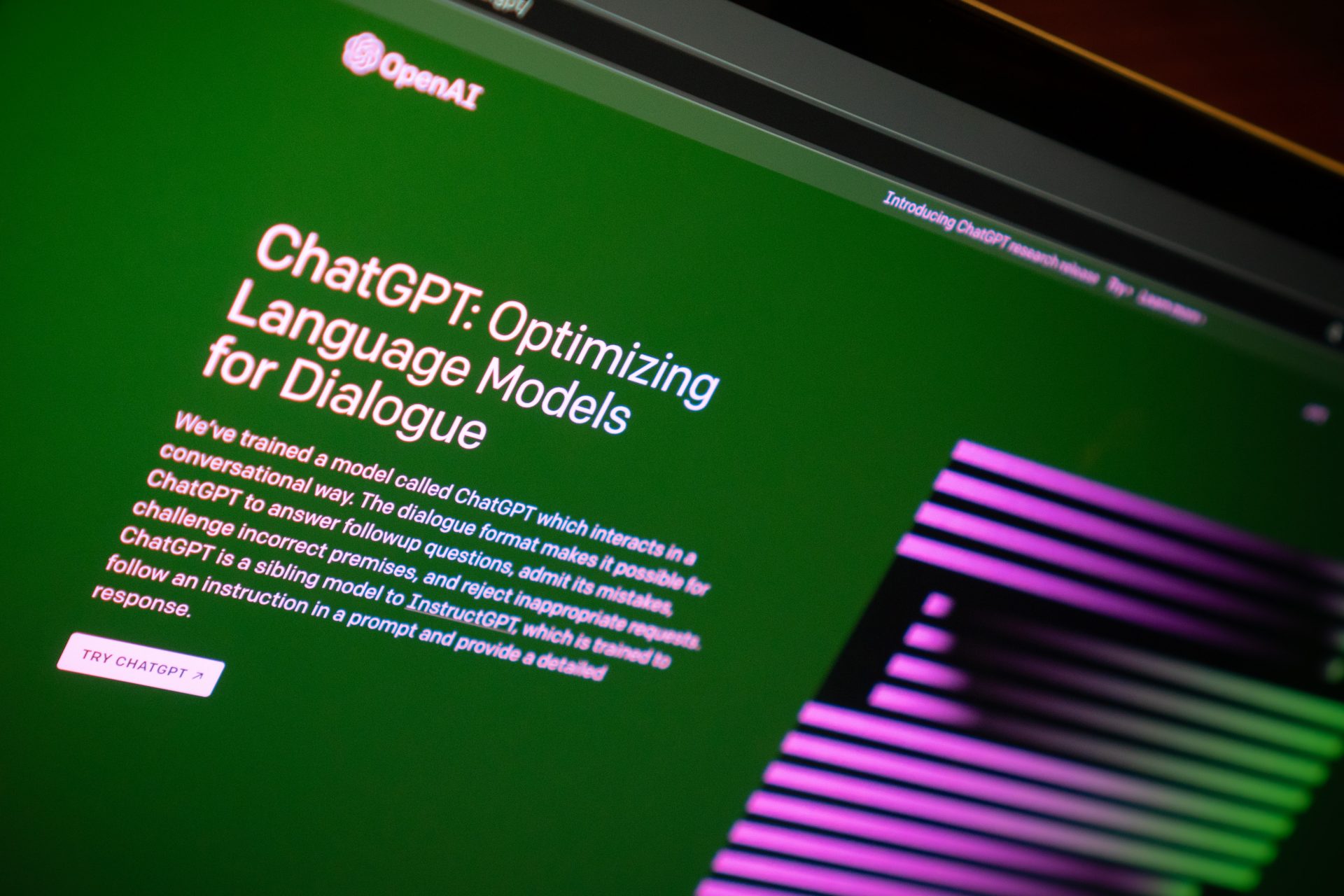In late 2022, a new AI tool, called ChatGPT, exploded into the marketplace. Since then, it’s been mentioned in hundreds of online articles, in chatrooms, and in the media.
According to Reuters, “ChatGPT, the popular chatbot from OpenAI, is estimated to have reached 100 million monthly active users in January, just two months after launch, making it the fastest-growing consumer application in history.”
Why Use an AI Marketing Tool?
Influencer Marketing Hub replies with, “One of the biggest benefits of AI marketing technology is it can automate data-based decisions in an instant. Data is everything in marketing. It can demonstrate how your customer would react to your message or tell you the best strategy for your email marketing campaigns.”
“Today’s AI platforms enable marketers and organizations to develop rich customer insights from a range of data sources,” comments Salesforce, “which can help deepen customer connection, develop authentic engagement and drive more conversions.”
It’s not meant to replace your marketing team. But rather enhance its capabilities. For example, you specialize in the manufacturing industry and want to develop a themed content calendar to help drive leads, increase your online credibility (i.e., SEO), and influence service upsells for current clients. You could turn to one of a dozen or more AI tools to help with that.
How can AI be used in marketing?
In addition to content and idea generation, AI can be used to assist marketing teams with the following:
- Marketing automation to identify potential customer and engage with them when they are most likely to be responsive to your marketing message.
- When used with a CRM, it can personalize the content shared with website visitors, email readers, in remarketed ad campaigns, and more to improve engagement rate, conversions, and marketing ROI.
- Predictive analytics and forecasting are a great way to use AI in marketing. Data from past customer interactions can predict their future interactions. When applied to a larger audience, it can also be used to forecast business metrics, such as revenue outcomes.
- Automating repetitive tasks, such as email drip campaigns, survey analysis, reporting, answering common questions, and more.
- Social media listening to get in front of your audience by scanning for pre-determined topics to provide the team with influencers, trends, and engagement opportunities. For example, if a celebrity dies without a will, it presents an opportunity to talk about the importance of estate planning.
- Enhance SEO efforts by doing keyword research, creating outlines based on SERP research, optimizing older content, and writing content titles and meta descriptions at scale.
- Produce visual content like infographics, eBook covers, videos, social media images, and more.
Case Study
Taking the manufacturing scenario into consideration, I used ChatGPT to craft a list of manufacturing topics with the goal of generating content for new and existing clients. Here’s what it came up with.
- Cost accounting and inventory management: This includes standard cost systems, activity-based costing, and cost-volume-profit analysis, among others. It’s essential for companies to effectively manage their inventory costs and control the manufacturing process.
- Lean accounting: This is a management accounting approach that aligns with the principles of Lean manufacturing, including reducing waste and maximizing value.
- Supply chain finance: This refers to the financing of purchases, production, and delivery of goods and services, including accounts payable and receivable management, cash flow forecasting, and working capital management.
- Automation and digitalization of accounting processes: This includes the use of software systems, cloud computing, and artificial intelligence in the accounting process.
- International accounting standards: With the increasing globalization of the manufacturing industry, it’s essential for companies to stay up-to-date with international accounting standards, such as International Financial Reporting Standards (IFRS) and Generally Accepted Accounting Principles (GAAP).
- Financial planning and analysis: This involves forecasting and budgeting, financial reporting and analysis, and performance management. It helps companies to make informed decisions and stay financially healthy.
- Environmental, social, and governance (ESG) reporting: As companies become increasingly responsible for their impact on the environment and society, ESG reporting is becoming an important aspect of financial reporting and accounting in the manufacturing industry.
- Cybersecurity in accounting: As more accounting processes become digital, it’s crucial for companies to secure their financial data and systems from cyber threats.
Top 20 AI Marketing Tools for 2023
ChatGPT is not the only AI marketing tool available to marketers. Influencer Marketing Hub lists these top 20 AI Marketing Tools for 2023:
- Phrasee – For discovering and creating effective ad copy
- SEMrush – Lets you see where you rank for targeted keywords
- Seventh Sense – Optimizes email marketing campaigns
- Smartwriter.ai – For creating personalized email outreach
- Optimove – A built-in optimization marketing bot
- Grammarly – A grammar and spell checker
- MarketMuse – For longform content creation and optimization, SEO
- Acrolinx – Scores existing content to meet brand metrics and guidelines
- InstaText – Checks for basic grammar, spelling while preserving the writer’s voice
- DeepL – Instantaneous and accurate translation of files and documents
- Jasper.ai – Automates your content marketing strategy
- Chatfuel – Assists in automating FAQs as well as qualifying leads
- MobileMonkey – A real-time, multi-platform bot
- ManyChat – Captures phone numbers and email addresses
- GrowthBar – Content generation
- Surfer SEO – Search engine page rank analyzer
- Frase.io – Creates SEO-optimized content
- Smartly.io – Allows for creative ad testing across multiple platforms
- Emplifi.io – Influencer marketing discovery and tracking
- Brand24 – A social media reputation monitoring
AI Marketing Pitfalls
Be aware there are some pitfalls to leveraging AI tools in your marketing, including:
- Quality concerns
- Plagiarism
- Algorithms (social and search engines) may devalue content
- Lacks creativity and personalization on its own
- Human editing and oversight is still required
- Cannot come up with fresh ideas or original content, just repurposed content.
Weigh the pros and cons of using AI in your firm’s marketing efforts. To avoid the shiny object syndrome, conduct research, identify what you want it to accomplish, and pinpoint the products that will scale with your firm’s growth initiatives.
Thanks for reading CPA Practice Advisor!
Subscribe Already registered? Log In
Need more information? Read the FAQs





